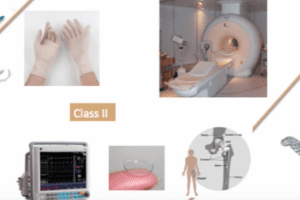
Rep Rosa DeLauro urges the US FDA Science Board follow Health Canada’s lead and expand its inquiry. Representative Rosa DeLauro (Democrat-Conneticut) is urging the US Food and Drug Administration’s (FDA) Science Board follow Health Canada’s lead and expand its inquiry of bisphenol A (BPA) by identifying all medical devices containing BPA.“Scientific studies have linked BPA to […]

Rep Rosa DeLauro urges the US FDA Science Board follow Health Canada’s lead and expand its inquiry. Representative Rosa DeLauro (Democrat-Conneticut) is urging the US Food and Drug Administration’s (FDA) Science Board follow Health Canada’s lead and expand its inquiry of bisphenol A (BPA) by identifying all medical devices containing BPA.“Scientific studies have linked BPA to neurological and behavioral problems in youngsters, as well as certain cancers, diabetes, and obesity,” DeLauro wrote to Frank Torti, the FDA’s principal deputy commissioner and chief scientist.
The FDA has long maintained—even in the face of tremendous opposition—BPA’s safety. But earlier this month it asked Science Board Chairwoman Barbara J. McNeil, M.D., Ph.D., head of Health Care Policy at Harvard Medical School, to establish a subcommittee to assess BPA.
The subcommittee will hold a public meeting on BPA’s safety in plastics, review an agency task force report on BPA, and present its findings at the Science Board’s annual meeting this fall, the FDA has said.
DeLauro says a review of bottles and food containers is not enough. “The potential risks posed to patients by BPA leaching from medical devices, especially implantable ones, would be very significant,” her letter says. “I strongly urge you to expand your request, and have the Science Board also assess the safety of BPA in medical devices.”
BPA is a ubiquitous chemical that has been under debate and in the news in recent months. BPA is a chemical compound that mimics estrogen and is found in polycarbonate plastics and epoxy resin. Studies confirm BPA is chemically similar to diethylstilbestrol, a synthetic estrogen linked to the development of vaginal cancer in the daughters of women who took the drug in the 1950s-1960s to prevent miscarriage.
BPA has been in commercial use since the 1950s and is found in a wide variety of everyday items including water bottles, food and drink packaging, food can linings, dental sealants, CDs and DVDs, eyeglasses, and automobiles.
While the FDA now says it has been reviewing emerging literature on BPA on a continuous basis for years and its Center for Food Safety and Applied Nutrition initiated a formal reexamination of the safety of BPA in early 2007, as recently as last month, the FDA agreed with the chemical industry in defending its safety, announcing it saw no reason to advise consumers to stop using products made with the controversial chemical.
In testimony before a Senate subcommittee, Norris Alderson, the FDA’s associate commissioner for science, defended the FDA’s reliance on two industry-funded studies in making this determination. Critics have accused the FDA of failing to act on BPA concerns and have accused them of acquiescing to industry.
This April, the National Toxicology Program (NTP) of the National Institutes of Health published a Draft Brief stating that some studies suggest BPA may raise “some concerns” for “neural and behavioral effects in fetuses, infants, and children at current human exposures” and also had “some concern” for exposure in these populations “based on effects in the prostate gland, mammary gland, and an earlier age for puberty in females.”
The personal injury attorneys at Parker Waichman offer free, no-obligation case evaluations. For more information, fill out our online form or call 1-800-YOURLAWYER (1-800-968-7529).


